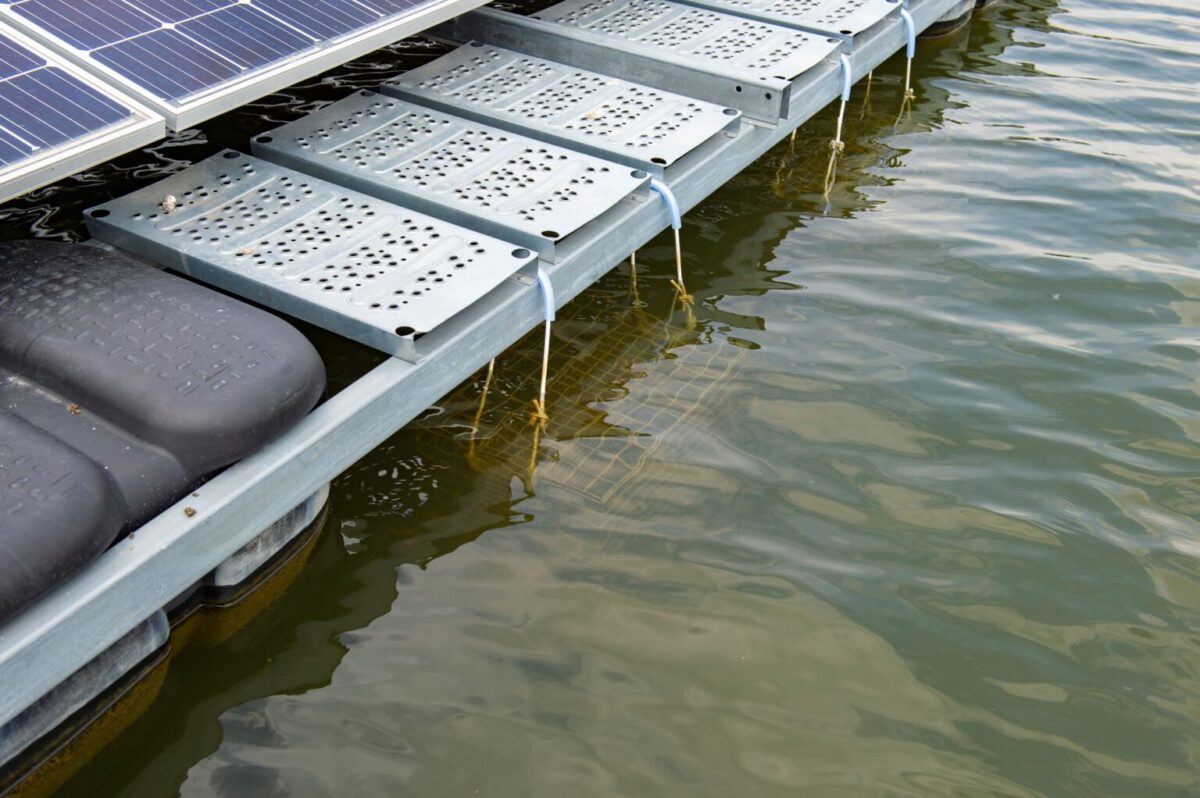BayWa re has published the first results of several environmental impact studies conducted on avifauna, wildlife fish farming and water quality of two of its floating solar farms in the Netherlands. The results show that artificial habitats under the panels, or “biohuts,” are very beneficial for aquatic ecosystems.
The first surveys carried out by Ecocean on the 20 biohuts of the 18-hectare Bomhofsplas floating solar park, three years after installation, showed a considerable increase in the presence of aquatic fauna, for both invertebrates and fish.
Biohuts have a nursery function, protecting small fish from predators. They also serve as spawning grounds for fish and habitats for microorganisms and invertebrates.
At the same Bomhofsplas floating solar park, the water quality did not change after the installation of the solar panels. the University of Groningen measured water quality for more than 10 months. These measurements were carried out using sensors placed at different depths in open water and under the panels.
The company's experts also found that dissolved oxygen levels also remain at normal levels. The temperature differences under the panels have even been reduced compared to the open water area. The temperatures of the upper water layer, during warm periods, were lower under the panels and the cooling of the water, during cold periods, also occurred more slowly under the panels.
Popular content
BayWa re also conducted a study on avifauna at the Weperpolder floating solar farm. Commissioned in 2018, the 1.5-hectare array is located near a natural area. The census campaigns aimed to measure the number of birds and geese before and after the construction of the floating solar park.
Observations indicate a high presence – and comparable to the initial situation – of birds and geese on the lake. Some of them – ducks and seagulls – even use floating photovoltaic installations as a resting place.
“This research effort allows us to improve our knowledge and the design of our parks. A large number of articles are published, but only a few are based on measurements, monitoring or solid scientific bases,” said Constantin Magne, a spokesperson for BayWa re in France.
BayWa re currently has 19 floating solar parks under construction or in operation, or more than 300 MW.
This content is protected by copyright and may not be reused. If you want to cooperate with us and would like to reuse some of our content, please contact: editors@pv-magazine.com.



Thanks for the interesting report. Where can I find the reports from BayWa?